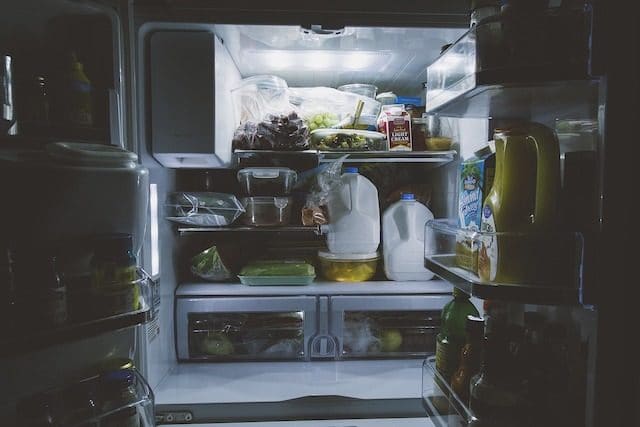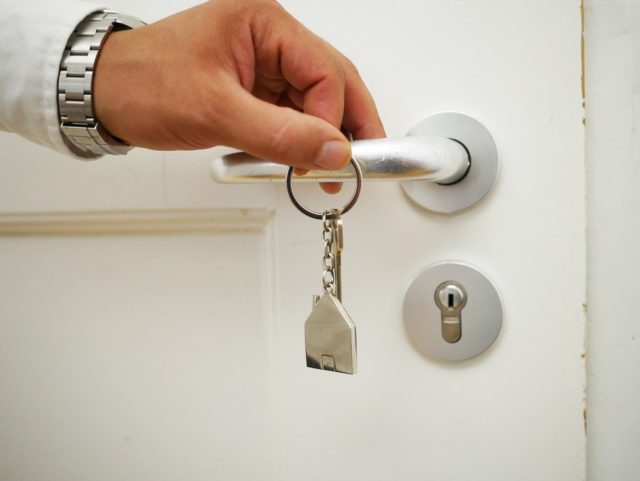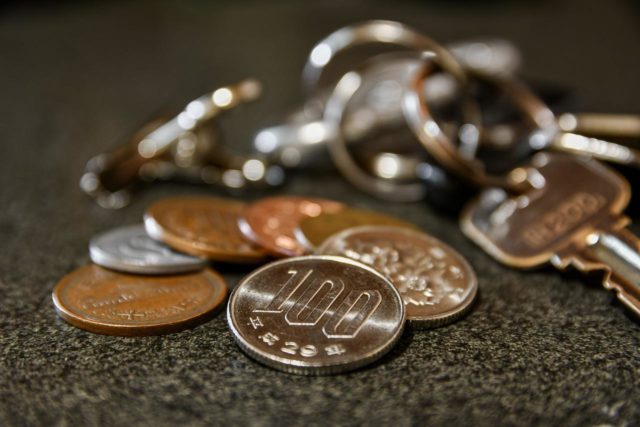There’s been a big backlash in the media over the last few years against landlords who practice less than hospitable landlording. But it’s hard to be sympathetic to one of the few groups of people still known as lords out there in the world. And while there’s no doubt many landlords are reasonable people who are kind and helpful people, there are also a heck of a lot of awful ones who overcharge or otherwise abuse their tenants. And that’s just the start of it. Turns out there’s a lot of shady things landlords are able to do which are perfectly legal, too.
10. Arkansas Landlords Don’t Have to Maintain Their Properties

If you’re paying to rent a house or property from someone else, you have some general expectations of what your landlord is providing for you. At the very least, the place needs to have electricity and water and be in a state of good repair. What you might call “livable”.” And that is almost universally true. But if there’s one thing we should know by now, it’s that “almost” is a far stretch from “always.” And in this case, that means Arkansas is the exception.
Landlords in Arkansas have no legal requirement to make sure your property is liveable. From a legal standpoint, your rental does not need to meet the standards of “habitable.” Likewise, if something breaks, landlords can invoke the unofficial doctrine of “so what?” Which is to say they don’t have to make repairs if they don’t want to. And if you think you can hold off on paying rent until the landlord fixes your place, think again. You have no right to withhold rent for any reason in the state.
These aren’t simple problems, either. There are many tales of renters getting sick from mold that landlords won’t fix, holes in walls, heat going out in the winter and more, none of which the landlords have to deal with if they choose not to. Arkansas is the only state that allows this.
9. In California a Fridge is an Amenity Not a Necessity

When’s the last time you sat down and felt blessed to have the power of refrigeration in your home? It wasn’t so long ago that people didn’t have that luxury and you needed to keep food in ice boxes or root cellars to try to keep them fresh. Refrigerators really are amazing tools. But that doesn’t mean you have a right to have one in California, where landlords count them as amenities rather than necessities. You can have a fridge, of course, but it could just as easily be your responsibility to buy it.
For homeowners, this is a given, not many houses come with refrigerators installed. But for renters, it’s typically the opposite. Most apartments or houses you rent will come with the basic kitchen appliances – a stove and a fridge. If you’re really lucky, you’ll get a dishwasher or a washer and dryer included. But California doesn’t play by those rules. A fridge is the same as a pool, basically.
Of course, if your lease specifies a fridge, then yes, you get to have one, and it’s the landlord’s responsibility to ensure it keeps working as well.
8. Landlords in North Carolina (and Other States) Don’t Need to Provide Any Notice of Entry

The last thing anyone wants is to have someone walk in on them in the privacy of their own home. Landlords are usually required to give notice if they want to come and check out the property that you rent from them, and typically 24 to 48 hours notice is given. But that’s not always a legal requirement and in North Carolina and some other states, your landlord can access the property anytime they choose with no notice.
This also includes people working on behalf of your landlord. So if they want to send a plumber or an electrician in without notice, they can do that as well. If you’re not home, that person now has free access to your whole place. A tenant’s only recourse is to show that someone entering their home unannounced is ruining their enjoyment of the property, like in cases where workers go through someone’s belongings. But you need to catch them and prove it, first.
7. Landlords Don’t Necessarily Have to Disclose Murders

As we all know from horror movies, if you move into a place where people were murdered, you’re setting yourself up for disaster. Luckily, landlords are required to disclose the history of a building, including whether any violent crimes took place on the property. Except for all the places where they don’t have to do that, which is actually most states.
Only three states actually require that deaths in a home be disclosed. In California, any death in the last three years, even if it was by natural causes, needs to be disclosed. In South Dakota it’s murders or suicides in the last year.
Canadian law doesn’t require any disclosure but, like many states, realtors and landlords are encouraged to be honest.
6. Japanese Landlords Don’t Have to Rent to Foreign Tenants

There are a lot of reasons to want to travel to Japan and even spend some time there, but proceed with caution. Renting a place in Japan is not easy if you’re from another country. Why? Japanese landlords don’t have to rent to foreigners. Around 40% of foreign residents looking for housing get denied simply because they’re not from Japan.
A Japanese guarantor may help a foreign renter get access to an apartment or house, but those are hard to come by as well. On the surface, it seems like a way to cover losses in case a foreign renter skips out on rent to go back home, but it even applies to actual Japanese citizens who are originally from other countries or their parents were. Much of this stems from landlords not being able to communicate in foreign languages like English and assuming tenants will not speak Japanese. Others fear foreigners just won’t follow the rules and customs.
5. Some Japanese Landlords Charge “Key Money”

Sticking with Japan, there’s another unusual tradition that is one of those forced voluntary things that you run across in life from time to time where the idea is you don’t have to do this but, you know, you sort of do have to. In this case, it’s something called reikin, or key money.
When you have the chance to rent an apartment in Japan, key money is a payment you pay in advance to the landlord that is considered a gift. It’s like saying “thank you for letting me rent this apartment.” But it’s not also technically not a gift because you’re not getting the apartment if you don’t pay it. And you don’t get it refunded ever. And it won’t be used as rent or a deposit, either. It’s literally just money for nothing.
Key money can be a couple of months’ rent to as much as six months. All paid in advance, and totally non-refundable because, again, this is a gift. So why would you ever pay it? Because if you don’t, someone else will.
The upside here is that not all landlords require this. But those that expect it are unlikely to be talked out of it. And, if you have a mind to negotiate the amount with a landlord who does require, you may end up just talking yourself out of the property.
4. German Landlords Don’t Provide Kitchens

Let’s stick to landlords in other countries and visit Germany, where you’re not technically entitled to a kitchen when you rent a property. This is somewhat different from that California rule, which says you don’t necessarily get to have a fridge. In this case, the entire kitchen can be missing. Even countertops and the sink. That’s not to say there is no room in the house or apartment that would be a kitchen. In fact, the landlord does have to provide the space for you to have a kitchen if you want one with electrical outlets, water and the other bare bones of the place. But that’s it.
Plenty of travel bloggers have posts on their sites to alert fellow would-be Germans of what to expect when they arrive. It seems that most German renters are in it for the long haul, so they’re fine with investing in their own kitchen. And they’ll take it all, including light fixtures, when they move out. It’s just those from abroad who are unprepared.
3. Mississippi Landlords Could Seize All of an Evicted Tenant’s Property

In 2021, the law in Mississippi changed to allow some more rights for tenants during the eviction process. This stemmed from a previous law, now deemed unconstitutional unless the decision is appealed, which allowed a landlord to lay claim to everything you owned if you were evicted.
If a tenant was even a single day late paying rent, the landlord could issue an eviction and, not only that, prevent you from taking your belongings with you. More than one tenant was actually awoken by a landlord in their home, accompanied by a constable. They were shown the removal warrant and then forbidden from taking their own stuff – keepsakes, family photos, clothing, anything. All of it was seized by the landlord and, in at least one case, just thrown in the trash out of spite.
Samantha Conner ended up going to court after her landlord seized all of her possessions and that’s where a judge ruled the law unconstitutional. By then, of course, it was too late. Her former landlord had admitted much of her property had just been thrown away. He could have let her keep it and remove it but he chose to make sure she couldn’t take it for no reason at all. The ruling can be appealed some time in 2022.
2. Landlords Can Require Dog DNA for Poop Analysis

Finding a pet-friendly rental can sometimes be a hassle depending on where you live. Some states and cities are more open to it than others, but no matter where you are there’s a chance you’ll find a no pet stipulation in a lease. And in places that do allow pets, there can often be a lot of red tape around having them. Separate pet deposits may be required, or even rules regarding the size and type of pets. And maybe they’ll just ask for DNA.
One of the big issues with dogs in rentals is the mess they make, especially in apartment buildings. People walk their dogs, the dogs poop, no one cleans it up. So some landlords started CSI level security measures to prevent this. Dog owners may be required to have their dog’s DNA on file or provide it later if they’re suspected of not cleaning up after their pooch. The offending samples can be sent to labs and if it matches a tenant’s dog, the tenant can be subject to fines or eviction.
1. Some San Francisco Landlords Don’t Allow Cooking

Back to California again where landlords continue their assault on you having any sort of a good time in the kitchen. In San Francisco, it’s possible you could find yourself stuck in a lease that prohibits you from cooking food in your home. You know, that thing most of us need to do to live?
The San Francisco housing market is a bit of a nightmare and, as a result, you might find listings for a master bedroom and bathroom combo at a staggering $1,790 a month. Again, that’s a bedroom in a house, not the house itself. And because it’s just a bedroom, the homeowner doesn’t want you mucking it up with your meals, so no cooking is allowed. Neither are overnight guests.
During research for a story on the subject, journalists discovered 90 different listings in San Francisco that restricted cooking for potential renters. At best, they allowed for the use of a microwave. And these weren’t all just rooms in someone else’s house. Some were even studio apartments that the owners just didn’t want people cooking in. The most expensive one was just under $1900 and only microwave cookery was allowed.